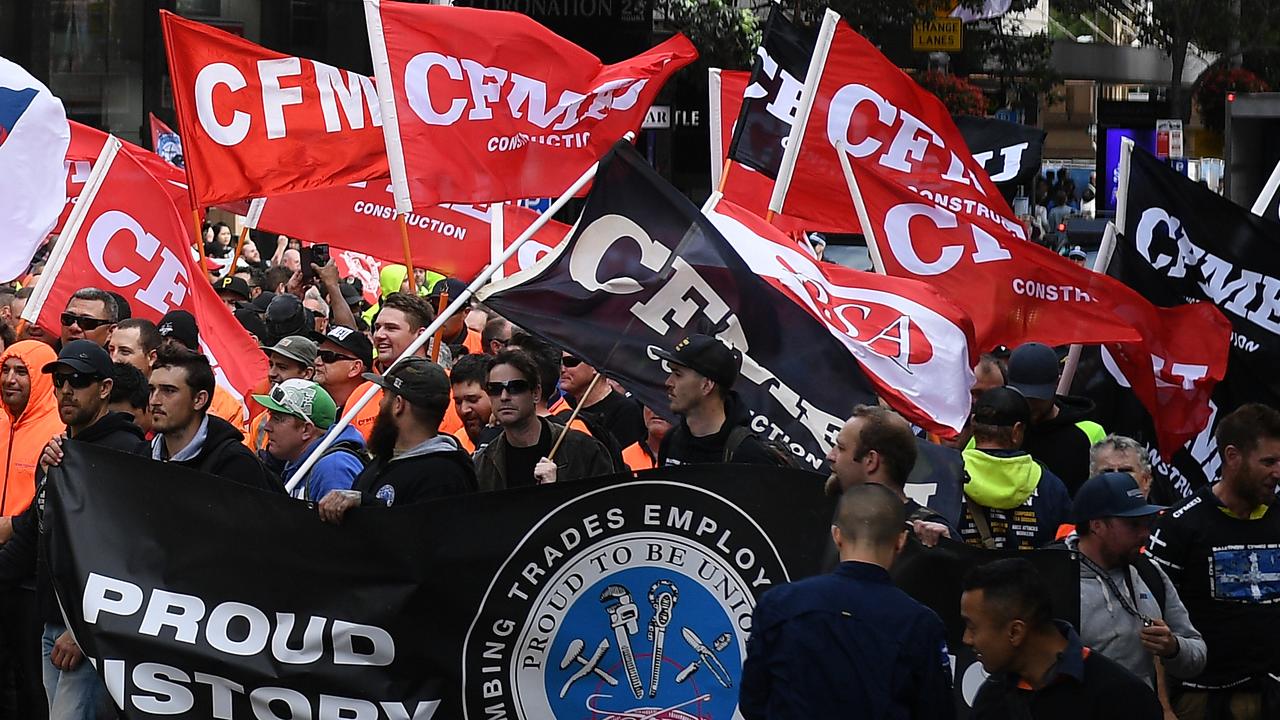Unions draw strength from ‘spectacular victory’ at coal mine
The mining union has claimed a ‘spectacular victory’ for striking labour hire workers.

The mining union has claimed a “spectacular victory” for striking labour hire workers, winning their conversion from casual to permanent employment, better conditions and pay rises under a two-year deal that will embolden the national union movement ahead of the federal election.
Construction Forestry Maritime Mining and Energy Union members at the Wollongong Coal-owned Wongawilli Colliery ended their strike after the company agreed to a settlement that will see them go from the lowest-paid casuals in the region to permanent workers on pay and conditions that are similar to union members in nearby mines.
The quick victory by the CFMEU will be welcomed by federal Labor and the ACTU but will likely disappoint national employers, who are seeking to push back against Bill Shorten’s pledge to rewrite labour hire laws if the ALP wins office.
Hailing the agreement as a “spectacular victory”, the CFMEU said the colliery workers employed by labour hire firm CAS Mining Services would receive a 12 per cent increase in their hourly rate and an increase in a weekly production bonus from $400 to $450. While the workers will no longer receive a casual loading on their hourly rate, they will receive up to six weeks’ annual leave a year, carers’ leave, accident pay and long service leave.
The workers will be employed on fixed-term contracts “on a permanent basis” and CAS Mining has agreed to negotiate a two-year enterprise agreement providing for two annual 2 per cent pay rises.
The deal, prompted by the CFMEU members embarking on a two-week strike, was agreed by Wollongong Coal after negotiations involving its chief executive Milind Oza and CAS Mining business manager Jesse Yvanoff.
Gary Barraclough, an underground miner at the colliery, said the workers had called the company’s bluff by taking the strike action. “It’s a positive outcome,’’ he said. “It’s positive for the future of the place and its long-term longevity.”
CFMEU mining and energy southwestern district vice-president Bob Timbs said the agreement was a “massive win” for the mineworkers and a “crystal clear example of union power”.
Union membership at the colliery rose from 13 to 80 over nine months last year before the CFMEU decided to pursue an enterprise agreement. A picket line outside the colliery this week was attended by a number of federal Labor MPs, including local member Stephen Jones.
“These were un-unionised, casual workers who were being exploited by their employer,’’ Mr Timbs said. “They were the lowest-paid labour hire casuals in the region. Through joining their union and flexing their collective muscle, they are now permanent employees on pay and conditions consistent with the area.”
CFMEU national president Tony Maher said the outcome was an important win for workers. “The conversion of permanent, well-paid jobs into poorly paid, insecure jobs is a huge issue right across the country,” Mr Maher said. “What this win proves is that the trend is reversible. If labour-hire workers join their union, if politicians flag the situation is untenable, then we can turn this around.”
CAS Mining owner and general manager Chris Smith welcomed the agreement, describing it as a victory for the company and the workers. “It’s been a good result for the employees and the company and Wollongong Coal came to the party,’’ he said.
The strike was the latest flashpoint in the battle between employers and unions in the wake of last year’s precedent-setting court ruling on casuals. Labour hire firms were hit with union claims and class actions over their allegedly unlawful use of casuals in the mining industry.
CAS Mining, accused by the union of unlawfully employing its 100-strong workforce as casuals, had warned it would “go broke” without the additional financial commitment from Wollongong Coal to meet the extra costs of a new agreement.
Jobs and Industrial Relations Minister Kelly O’Dwyer had encouraged the CFMEU and CAS to return to the bargaining table. While she had said labour hire was a legitimate, useful way for employers to access a flexible workforce, she maintained that labour hire employers were required to comply with legal obligations and provide workers with their entitlements.





To join the conversation, please log in. Don't have an account? Register
Join the conversation, you are commenting as Logout